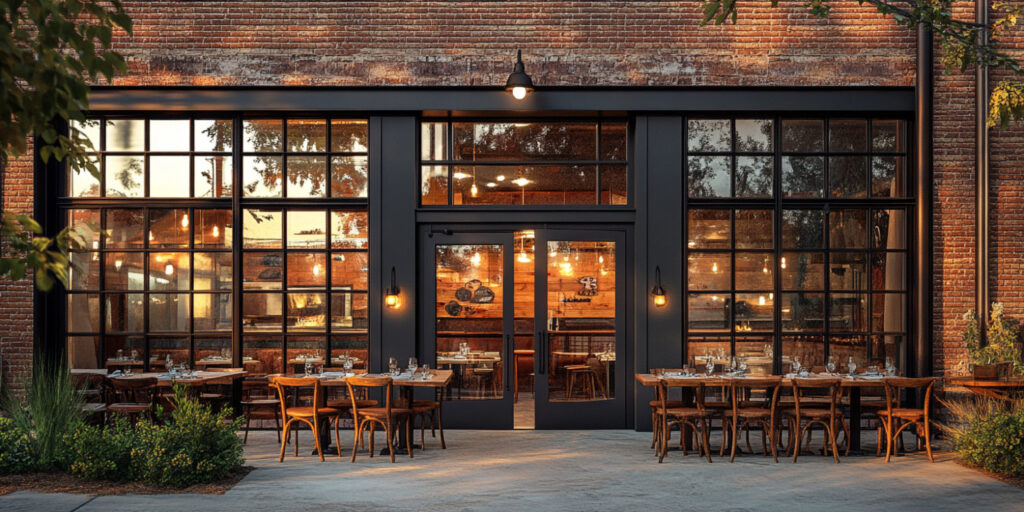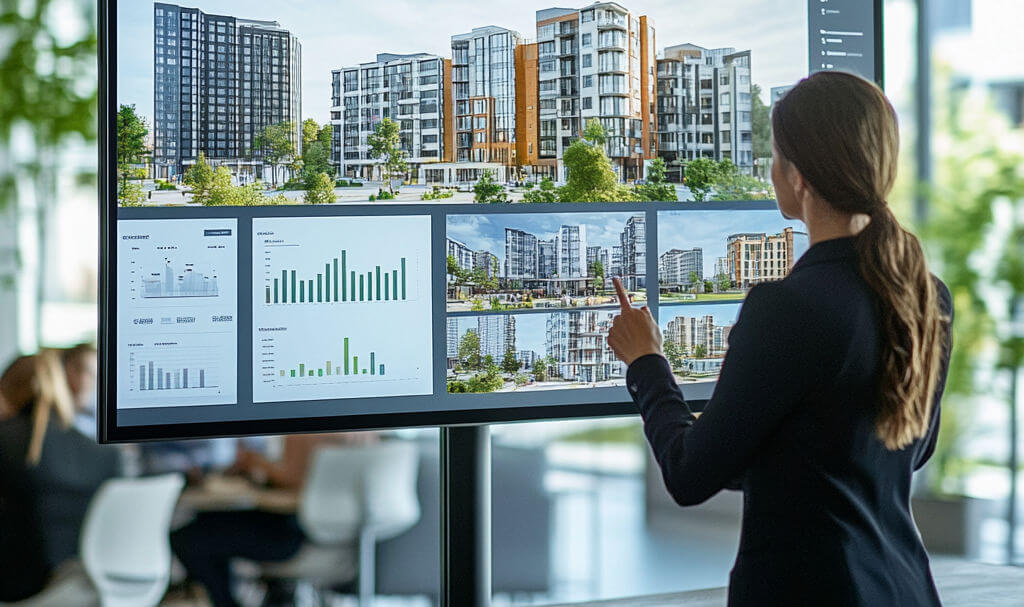Commercial Real Estate (CRE) is distinct from residential real estate, which involves properties meant for private living. While residential properties are bought primarily for personal use or rental income, CRE investments are made with the intent of generating business income. This can come from leasing space to businesses or from selling the property at a profit due to its appreciation over time.

What to Look for During Property Inspections
Inspecting a CRE property is a critical step in the investment process. A thorough inspection helps ensure that the property meets your investment criteria and identifies any potential issues that could affect its value or functionality. Here are some key factors to consider during a CRE property inspection:
- Location: The location of a CRE property is one of the most important factors influencing its value and potential for success. Consider the property’s proximity to major roads, public transportation, and other businesses. The neighborhood’s demographics, growth prospects, and overall economic health are also crucial.
- Condition of the Building: Evaluate the structural integrity of the building. Inspect the foundation, roof, walls, and overall construction quality. Look for signs of damage, wear and tear, or needed repairs. The condition of the building’s systems (HVAC, plumbing, electrical) is also vital.
- Compliance: Ensure that the property complies with local zoning laws, building codes, and regulations. Non-compliance can lead to costly fines or mandatory modifications. It’s also essential to check for any environmental issues, such as asbestos or lead paint, that could pose health risks or require remediation.
- Amenities: Assess the amenities available to tenants, such as parking, elevators, security systems, and common areas. High-quality amenities can attract and retain tenants, enhancing the property’s desirability and value.
- Lease Agreements: Review current lease agreements to understand the terms, conditions, and stability of rental income. Look for long-term leases with reliable tenants, as well as any upcoming lease expirations or renewal options. The property’s income stability is a key factor in its valuation.
- Market Conditions: Research the local market to understand trends, vacancy rates, and comparable property values. A thorough market analysis can help you determine if the property is priced correctly and has good growth potential.

Detailed Examination of CRE Property Types
Understanding the nuances of each CRE property type can help investors make more informed decisions. Let’s delve deeper into the specific characteristics and investment potential of each category:
1. Office Buildings
- Class A Office Buildings: Located in prime business districts, Class A buildings offer state-of-the-art facilities and premium amenities. They attract blue-chip tenants willing to pay higher rents for prestigious locations. These buildings often feature advanced technology, energy-efficient systems, and superior architectural design.
- Class B Office Buildings: These properties offer a balance between quality and cost. While they may lack some of the high-end features of Class A buildings, they still provide a professional environment. Investors can often add value by upgrading facilities and improving management.
- Class C Office Buildings: Typically older and located in less desirable areas, Class C buildings offer lower entry costs and the potential for significant value-add opportunities through renovations and repositioning.
2. Retail Spaces
- Shopping Centers and Malls: These properties rely on foot traffic and the right mix of tenants to drive success. Location, anchor tenants (such as major retail chains), and consumer trends are critical factors. Malls are evolving to include more entertainment and experiential elements to attract visitors.
- Stand-Alone Stores: These properties offer stability with single tenants and are often leased to national chains. They can provide predictable income streams but may be vulnerable to changes in the retail landscape, such as the rise of e-commerce.
- Specialty Retail: Unique locations and niche markets define specialty retail. These properties can command premium rents but require careful tenant selection and marketing to attract the right clientele.
3. Industrial Properties
- Warehouses: Essential for logistics and distribution, warehouses are increasingly important in the era of e-commerce. Proximity to transportation hubs, clear height, loading docks, and floor load capacity are key considerations.
- Manufacturing Buildings: These facilities often require customization for specific industrial processes. Investors should consider the potential for reuse or conversion to other industrial purposes if the original tenant vacates.
- Flex Spaces: Offering a mix of office and industrial uses, flex spaces are adaptable to various business needs. They can accommodate everything from startups to established companies needing flexible workspace.
4. Multifamily Properties
- Apartments: Multifamily properties provide stable rental income and can benefit from economies of scale. They are less volatile than single-family homes and offer opportunities for value-add through renovations and improved management.
- Condominiums: Investors can purchase individual units or entire buildings. Condos offer flexibility, as units can be sold separately. However, they also involve homeowner associations and maintenance fees that must be considered.
5. Hospitality Properties
- Hotels: The performance of hotel properties is closely tied to the travel and tourism industry. Factors such as location, brand affiliation, and management quality are critical. Hotels can range from budget accommodations to luxury resorts, each with different risk and return profiles.
- Resorts: These properties offer extensive amenities and cater to leisure travelers. They require significant investment in facilities and services but can generate high returns through room rates, food and beverage sales, and recreational activities.

Why Choose Work with Bibi?
Navigating the complexities of CRE requires expert guidance and market knowledge. Work with Bibi stands out as a leading CRE expert, providing clients with unparalleled service and insights. Here’s why you should choose Work with Bibi:
- Extensive Market Knowledge: With a deep understanding of the local and national CRE markets, Work with Bibi helps clients make informed investment decisions. Their expertise spans all property types, ensuring you find the right investment to meet your goals.
- Client-Centric Approach: Work with Bibi prioritizes client satisfaction, offering personalized service and tailored solutions. They take the time to understand your unique needs and objectives, providing guidance and support at every step.
- Proven Track Record: With a history of successful transactions and satisfied clients, Work with Bibi has built a reputation for excellence in the CRE industry. Their proven strategies and market insights drive results, helping clients achieve their investment goals.
- Comprehensive Services: From property acquisition and disposition to leasing and management, Work with Bibi offers a full suite of CRE services. Their team of experienced professionals is dedicated to maximizing the value of your investments.
Commercial Real Estate offers diverse opportunities for investors and business owners alike. By understanding the different property types, key factors to consider during inspections, and leveraging the expertise of Work with Bibi, you can navigate the CRE market with confidence. Whether you’re looking to invest in office buildings, retail spaces, industrial properties, multifamily housing, or hospitality properties, Work with Bibi is your trusted partner in achieving success in the dynamic world of CRE.
Subscribe to the newsletter
Don’t Miss Any of Our Blog Posts, Subscribe to Our Weekly Newsletter Today!
Recent posts

What to Expect When Working with a CRE Agent: Your Guide to a Successful CRE Journey
Navigating the commercial real estate (CRE) market is a complex process that demands more than just basic knowledge. It requires

How to Find a Good Commercial Real Estate Broker: Your Guide to Navigating CRE
Navigating the complex landscape of commercial real estate (CRE) requires more than just a basic understanding of the market. Whether

Benefits of Adaptive Reuse for Restaurant Spaces
Adaptive reuse, the process of repurposing existing buildings for new uses, has become an increasingly popular strategy in the restaurant



